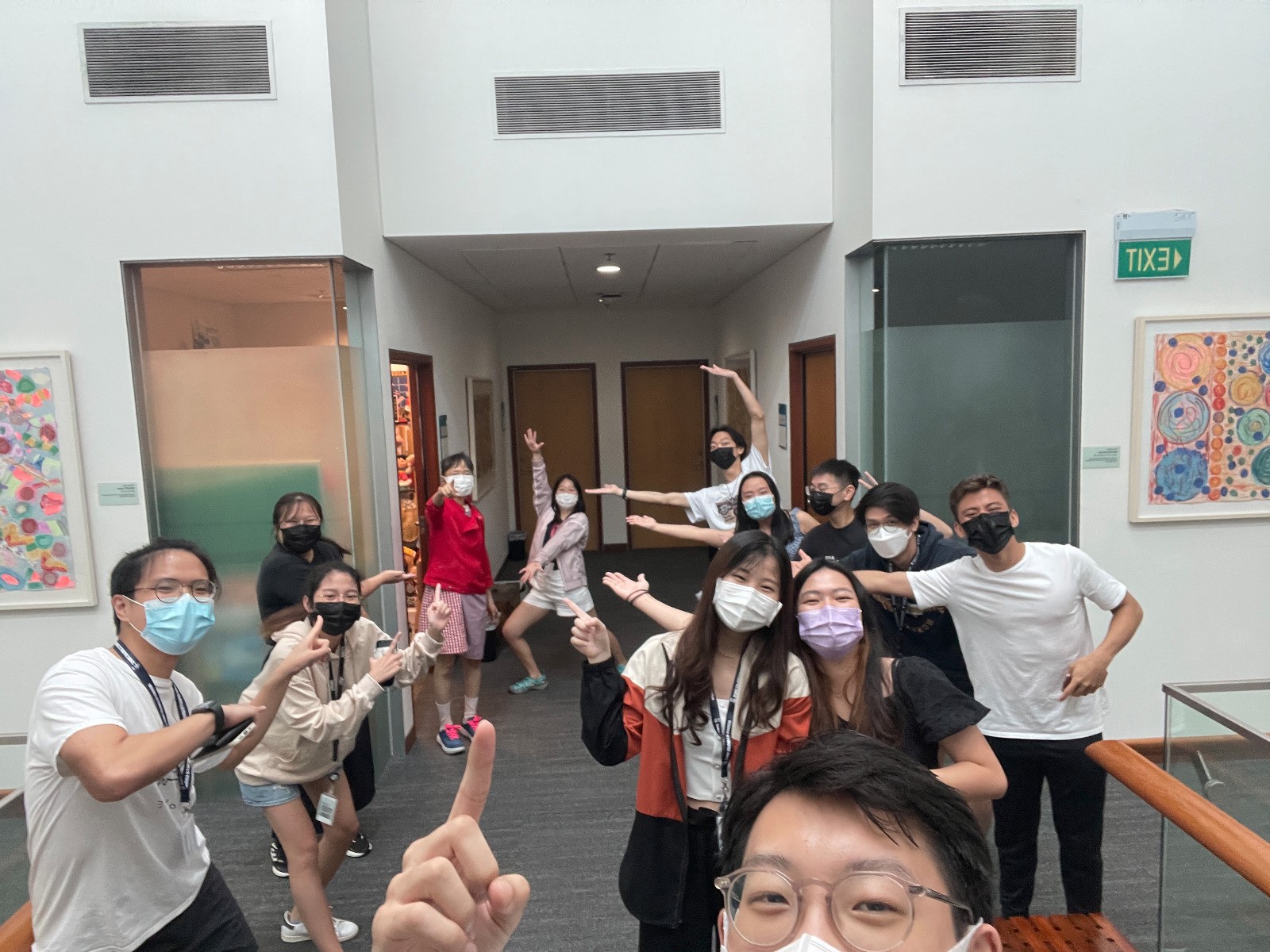
Singapore, 13 December 2021 – A nationwide student study by the Singapore Management University (SMU) has revealed that despite keeping a watch on the number of deaths due to the Covid-19 pandemic, only 5 in 10 Singaporeans are open to discussing end-of-life plans with loved ones.
Titled “Hatch.Match.Despatch.”, the survey involved interviews with 5,186 Singaporeans, conducted by SMU students, about their attitudes and preparations towards the circle of life, from hatch (birth) to match (marriage) to despatch (death).
This year’s nationwide survey of perceptions towards death was a follow-up to the original one done in 2018 by SMU Senior Lecturer of Statistics Rosie Ching and her students. Both years comprised comprehensive surveys of Singaporeans’ perceptions. The 2021 study interviewed Millennials, Gen X and Baby boomers in-person, through phone and Zoom calls, in line with COVID-era safe management measures.
The findings from this latest study show that when asked which life stage they think about more during the COVID-19 pandemic, a majority chose “Despatch”, which refers to the end-of-life stage. Regardless of age, 52% of respondents ranked the end-of-life as the most important life stage compared to birth (4%) and marriage (7%).
In contrast, where planning and preparations are concerned, only 53% of respondents interviewed would plan for the end-of-life stage, compared to 97% and 93% indicating that they would plan for marriage and births respectively. In 2018 (pre-COVID), respondents found it “Unnecessary at this point” to buy pre-planned funeral packages. This study, conducted by students in August, shows that there has been no shift in the mindset of respondents towards such packages. The full findings can be accessed here.
“This will go down as the most taboo project I have ever undertaken, from 2018’s first run till today. I personally experienced rejections from many quarters, many bordering on hostility,” said Ms Ching. “We forged ahead with conditions made even more challenging by the COVID-19 pandemic. I believe strongly in the need to educate our younger generation on the need to be prepared for end-of-life affairs, a topic so often swept under the carpet and left unspoken. For we must look at the circle of life as it is: from womb to tomb, cradle to coffin.”
Spearheading the nationwide study in collaboration with Direct Funeral Services Pte Ltd, Ms Ching aimed to help undergraduates understand the depth of openness of and planning by individuals towards death. The study was framed as an introductory Statistics project, where students could assimilate concepts and apply them to problems beyond classroom walls. Infused with the University’s unique SMU-X pedagogy, the study aimed to benefit students with experiential learning, in collaboration with industry partners to tackle real-world issues.
Commented Mr Darren Cheng, CEO and MD at Direct Funeral Services Pte Ltd, “We are very honoured to be invited yet again to collaborate with Rosie on her study. These are really hard questions to ask and without this project, we might never know the answers. It is something really bold for Ms Ching and the students to embark on. The results are intriguing and even more so during these times. Thank you so much for letting us be a part of this.”
Said Ms Ching, “I am truly privileged to have had the CEO and MD of Direct Funeral Services on board with us in this original study of our nation’s openness towards discussing and planning for the major milestones in life, from birth to marriage to death.”
Survey findings
- When asked which life stage they think about more in the COVID-19 pandemic, the highest percentage who said “A lot of the time” referred to the Despatch = end-of-life stage.
- Regardless of age, 52% of respondents ranked the end-of-life as the most important life stage compared to birth (4%) and marriage (7%).
- In contrast, where planning and preparations are concerned, only 53% of respondents interviewed would plan for the end-of-life stage, compared to 97% and 93% indicating that they would plan for marriage and births respectively.
- To Singaporeans, the top end-of-life step is “writing a will”, with 41.4%, and “buying insurance coverage” at a significantly lower second step at 22.44%. Only 4% wish to plan their own funeral. Yet 60% of them do not believe in buying advanced-planning funeral packages. Of these, the older the respondent, the more resistant they are towards buying such pre-planned packages.
- In 2018 (pre-COVID), respondents found it “Unnecessary at this point” to buy pre-planned funeral packages. This study, conducted by students in August, shows that there has been no shift in the mindset of respondents towards such packages.
- To note, the reason for the “right time” to buy such packages has shifted. In 2018, respondents stated “Retirement” (30%), followed by “Illness” (23%), as the right time. In 2021, the positions have shifted, with respondents indicating “Illness” (39%), followed by ”Retirement” (22%).
- People’s openness and reception to digital condolence money has significantly improved from 2018 to 2021, by between 8.57% and 12.07%. In 2021, almost half (49.79%) of all respondents reject digital condolence money, compared to much higher 60.11% in 2018. The same top reason persists, “Too impersonal”.
- 72.4% think that the cost of a funeral has risen since the 1980s, with more than half of these respondents saying “the cost has risen by between 30 to 80%”. This is a myth.
- Less than half of all age groups think future funeral facilities are not necessary. Gen X agrees most with this (47.3%), followed by Millennials (42.8%) and lastly Baby boomers (41.6%). This could be a problem for Singapore.
- Ultimately, even with 22.79% more respondents who have at least a bachelor’s degree than that surveyed in 2018 , there has been no significant shift in the average end-of-life index (ELI) between 2018 (ELI = 47.4074) and 2021 (ELI = 47.6841). Both years show a resistant, less-than-open attitude towards death and planning for it.
What is Hatch.Match.Despatch about?
In August 2021, 143 SMU students in a unique Statistics module created by Rosie Ching, Senior Lecturer of Statistics at SMU, collaborated with Direct Funeral Services Pte Ltd to conduct this nationwide study on the attitudes and preparations of Singaporeans towards the circle of life, from hatch (birth) to match (marriage) to despatch (death).
The project involved an original in-depth study, survey and analysis, designed and developed by Ms Ching. The survey culminated in an End-of-Life Index (ELI). The ELI Index holds a scale from 0 to 100, 100 being most open and 0 the least.
